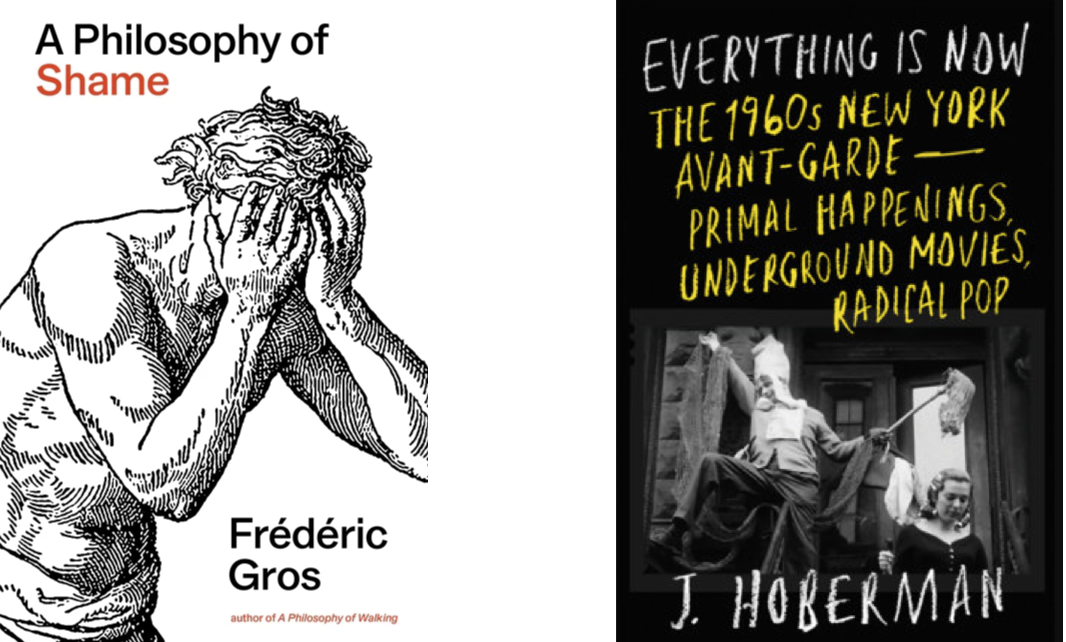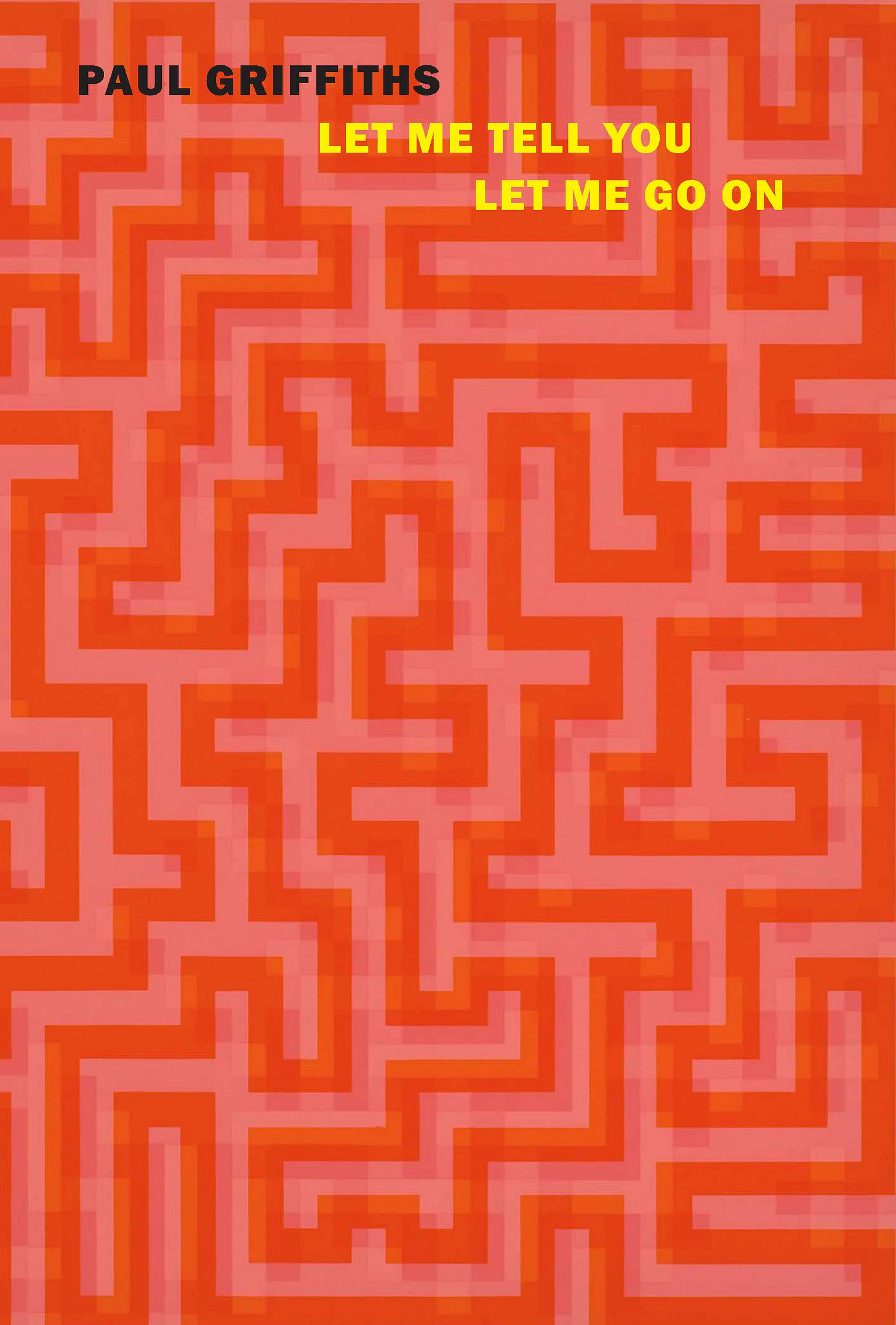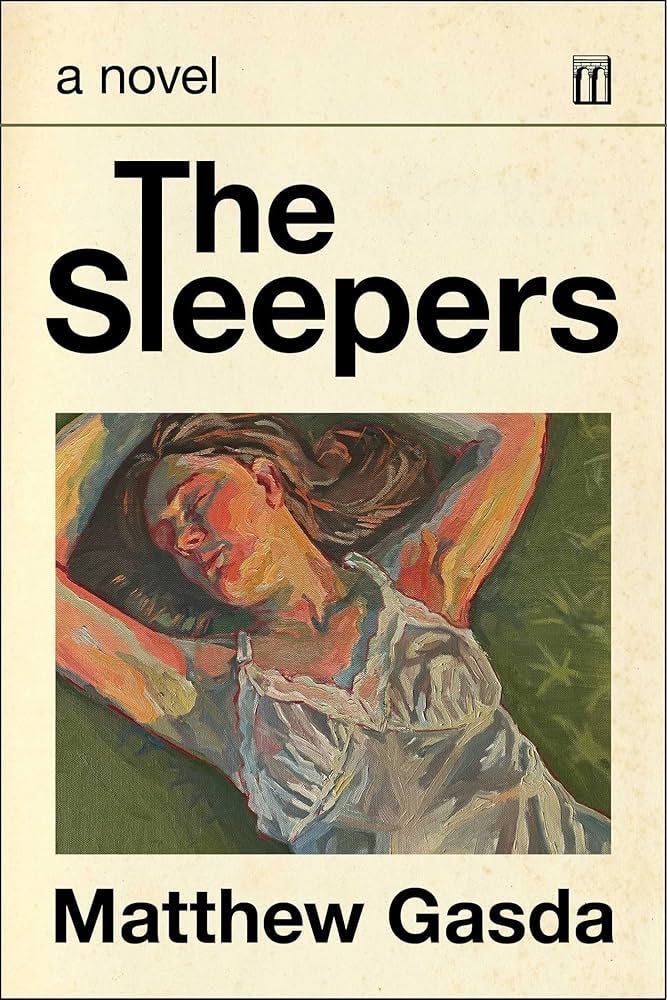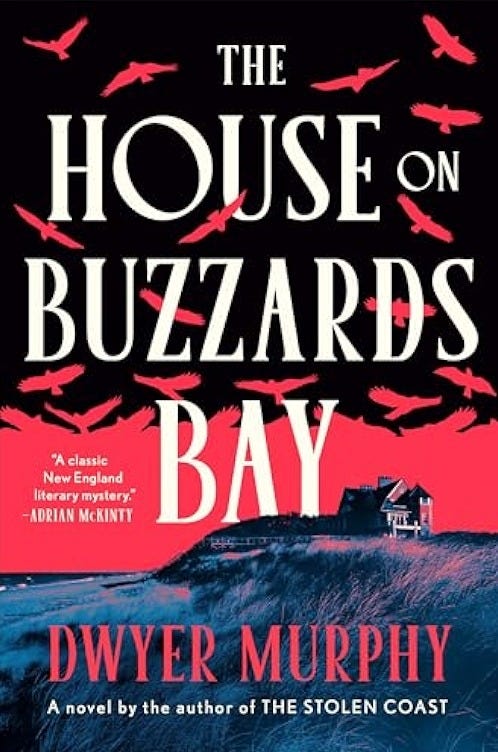
When I started this Substack, my intention was to mostly write short capsule reviews of books that I hadn’t had the opportunity to write about at length in some other outlet. I was thinking 250 to 500 words, tops.
Well, over the last few weeks I’ve instead written several longform reviews and essays, upwards of 2,000 words a piece. So I’m going to try and see if I can keep this summary of my May reading—the books I didn’t go long on—concise and to the point.
Frédéric Gros’s A Philosophy of Shame (Verso, May 20; Translated from the French by Andrew James Bliss) is more essay than book, really, a wending journey through the French thinker’s musings on the effects that shame can have on us, both positive and negative. I enjoyed Gros’s book, but I’m having a hard time coming to a conclusion about it—I don’t think Gros necessary comes to one, himself. His chapters on the way sexual assault has been treated in France were very affecting, and certainly influenced my review of Sue Prideaux’s Gauguin biography (link further down in the newsletter). Gros’s writing is rich and lyrical in that way translated French often is, and he loads the book full of references to literature both great and obscure—it’s a real feast. I expect to spend some time tracking down a lot of his references. I was hoping, though, for a little more about our current climate of shamelessness in public life, where there seems to be little regard for maintaining one’s dignity or integrity among figures who, in prior generations, would’ve sought to avoid public opprobrium or worried about their future legacy. An engrossing, if inconclusive read.
J. Hoberman’s Everything Is Now: The 1960s New York Avant-Garde—Primal Happenings, Underground Movies, Radical Pop (Verso, May 27) is about as unwieldy as its title. Hoberman’s garrulous chronicle is dizzying and discursive; it’s as if he’s trying to synthesize an almost real-time account of the 1960s New York art scene. No happening is too small, too obscure to escape mention, no artist or scenester luminous enough to warrant a thorough, in-depth exploration. Its wandering prose and penchant for minutiae reminded me of another account of a bohemian enclave, John Taylor Williams’s The Shores of Bohemia (my review at WBUR.org), though in that case, it came off as charming rather than exhausting. It’s funny, when Dimes Square was a big element of the discourse a few years ago, I saw a lot of people saying the people there couldn’t be a new avant-garde because they were mostly annoying dilettantes. Sure, I thought… but isn’t that what every avant-garde probably seemed like at the time? We only feel otherwise now because the wheat has been separated from the chaff by time, so to speak. Wouldn’t we have felt the same way about whatever was going on in the ‘50s and ‘60s had we been there to see the scene as it was, unfiltered? Hoberman’s book is evidence that I might have been onto something.
I listened to Adam Tooze’s The Wages of Destruction (2006), an economic history of the Third Reich and Second World War, as an audiobook—controversial stance here: listening to audiobooks isn’t reading. It’s flexing an entirely different muscle. That’s not to say it isn’t meaningful or that it’s less than, I just think we need to be clear about what words mean, and it’s important to keep the acts of reading and listening distinct. Anyway, large portions of this book, mostly those concerned with commodity prices and production targets, washed over me without making a dent, but when this book really locked in, it was excellent listening. I came away with two thoughts: First, as someone who feels like they fully understood the scope and severity of Nazi atrocities and the utter, rotten malevolence of the Third Reich, this book still shocked me with how unabashedly evil their designs for the world were. It’s hard to grasp how central and intrinsic slavery, mass murder, and genocide were to the whole project. Second: The Nazis and Hitler in particular were just massive losers. The aura of competence or charisma that surrounds them is completely undeserved, and Tooze’s book shows just how pathetic, hapless, and poisoned by their own absurd ideology they were.
Now, onto the recently released books that I’ve been writing about at length lately, both here and elsewhere.
In The Boston Globe: Terrestrial History by Joe Mungo Reed (W.W. Norton, April 8).
It would be nearly impossible to make the Earth as inhospitable to life as the planet Mars — not that we aren’t trying. And yet, despite the red planet’s toxic soil, harmful solar radiation, and utter lack of liquid water and oxygen, the idea that human beings might one day not just live but thrive there persists among a small, but influential set of techno-optimists. Inspired by sci-fi visions of futuristic, glass-domed cities and the prospect of vast, unprecedented terraforming efforts, they believe that our celestial next-door neighbor may be the best, last hope for humanity’s long-term survival.
Read the full review at The Boston Globe.
On Substack: let me tell you and let me go on by Paul Griffiths (New York Review Books, April 22).
Griffith’s intention with these novels is to give Ophelia a voice while acknowledging that her ability to speak has been constrained by design—both by the literal text and by the role she has to play.
The first book, let me tell you, is a prose poem that gives Ophelia a backstory, exploring her upbringing and youth prior to the events of Hamlet. The second, let me go on, is a metafictional experiment that imagines what happens to a fictional character once they’ve played out their part.
In both books, Ophelia relates her story in the first person. By leaning in to Ophelia’s limitations, Griffiths hopes to help her rise above them. Though it sounds gimmicky, the result is actually quite compelling.
Read my review, “Drowned in the stream of consciousness,” on Substack.
On Substack: The Story of Astrophysics in Five Revolutions by Ersilia Vaudo (Translated from the Italian by Vanessa Di Stefano, W.W. Norton, April 29)
Vaudo focuses on five important advances in scientific knowledge: Newton’s theories on gravity, Einstein’s theories of general and special relativity; Hubble’s discovery of the expanding universe, and the discovery of anti-matter. If there’s a common theme among these discoveries (and their discoverers) it’s that, for all their brilliance and unique insight, what really allowed them to untangle the mysteries before them was an ability to change their perspective and shift their frame of reference.
I also take the opportunity to cover Benjamin Labatut’s two “nonfiction novels,” Alexander Boxer’s history of astrology, and Christopher Potter’s You Are Here, which I think may be a better starting point for curious readers than Vaudo’s book.
Read my review, “Five books that pull at the seams of reality,” on Substack.
On Substack: The Sleepers by Matthew Gasda (Skyhorse/Arcade, May 6, 2025)
At its core, The Sleepers imagines that most people are faking it—that whatever one’s stated motivations and values, people are first and foremost self-interested, concerned with their own material well-being and relative social status. Everyone is playing a role, hiding behind a constructed personality that serves to insulate them from the pain of actually being perceived, but prevents them from enjoying the true happiness of genuine connection.
Read the full review on Substack.
At The Wall Street Journal: Proto: How One Ancient Language Went Global by Laura Spinney (Bloomsbury, May 13).
Roughly five millennia ago, a small band of nomads set out from their homeland around the Black Sea. On the wide-open grasslands of the steppe, they honed their skills as horsemen and herders and worshiped a god they called Father Sky. They neither erected great landmarks nor penned any texts. Yet their legacy persists, hidden within the words of the languages spoken by more than three billion people today.
Read the full review at The Wall Street Journal.
On Substack: Wild Thing: A Life of Paul Gauguin by Sue Prideaux (W.W. Norton, May 13)
“There were calls for him to be cancelled and even for his paintings to be burned,” says Prideaux. The controversy compelled her to examine whether it was tenable to enjoy Gauguin’s work while granting that he was, in fact, a terrible man. At the time of the show, Christopher Riopelle, the co-curator of the exhibition, told The Independent that “I don’t think, any longer, that it’s enough to say, ‘Oh well, that’s the way they did it back then.’”
Well six years later Sue Prideaux is here to tell us that, apparently, it is enough to say “that’s the way they did it back then.”
Read my review, “Does Gauguin need to be redeemed?” on Substack.
Upcoming reviews
In June, for WBUR: The House on Buzzard’s Bay by Dwyer Murphy (Viking, June 24).
In July, for The Washington Post: Flashes of Brilliance: The Genius of Early Photography and How It Transformed Art, Science, and History by Anika Burgess (W.W. Norton, July 8).
What I’m checking out for June
June 3 - Vivek Shanbhag, Sakina's Kiss (McNally Editions)
June 10 - Henrik Pontoppidan, The White Bear; The Rearguard (NYRB Classics)
June 10 - Henrik Pontoppidan, A Fortunate Man (NYRB Classics)
June 10 - Benito Perez Galdos, Miaow (NYRB Classics)
June 17 - John Gregory Dunne, Vegas (McNally Editions)
June 17 - Andre Breton, Nadja (NYRB Classics)
June 17 - Lauren O'Neill-Butler, The War on Art (Verso)
June 17 - Robert Finch, Summers in Squid Tickle (W.W. Norton)
June 24 - Joan Sales, Winds of the Night (NYRB Classics)












